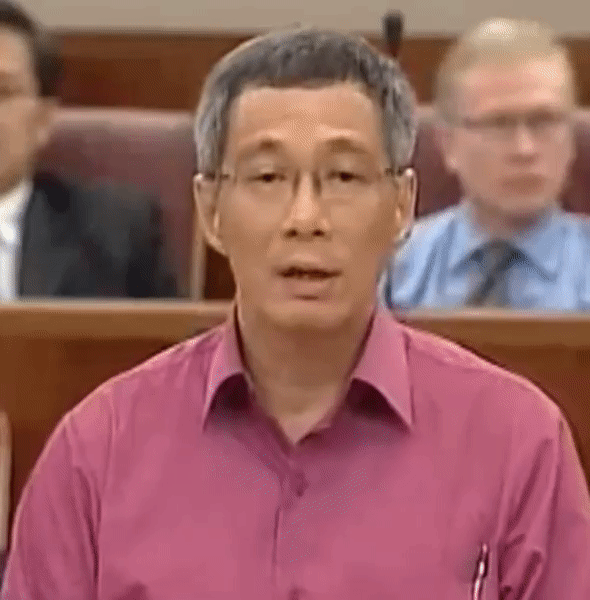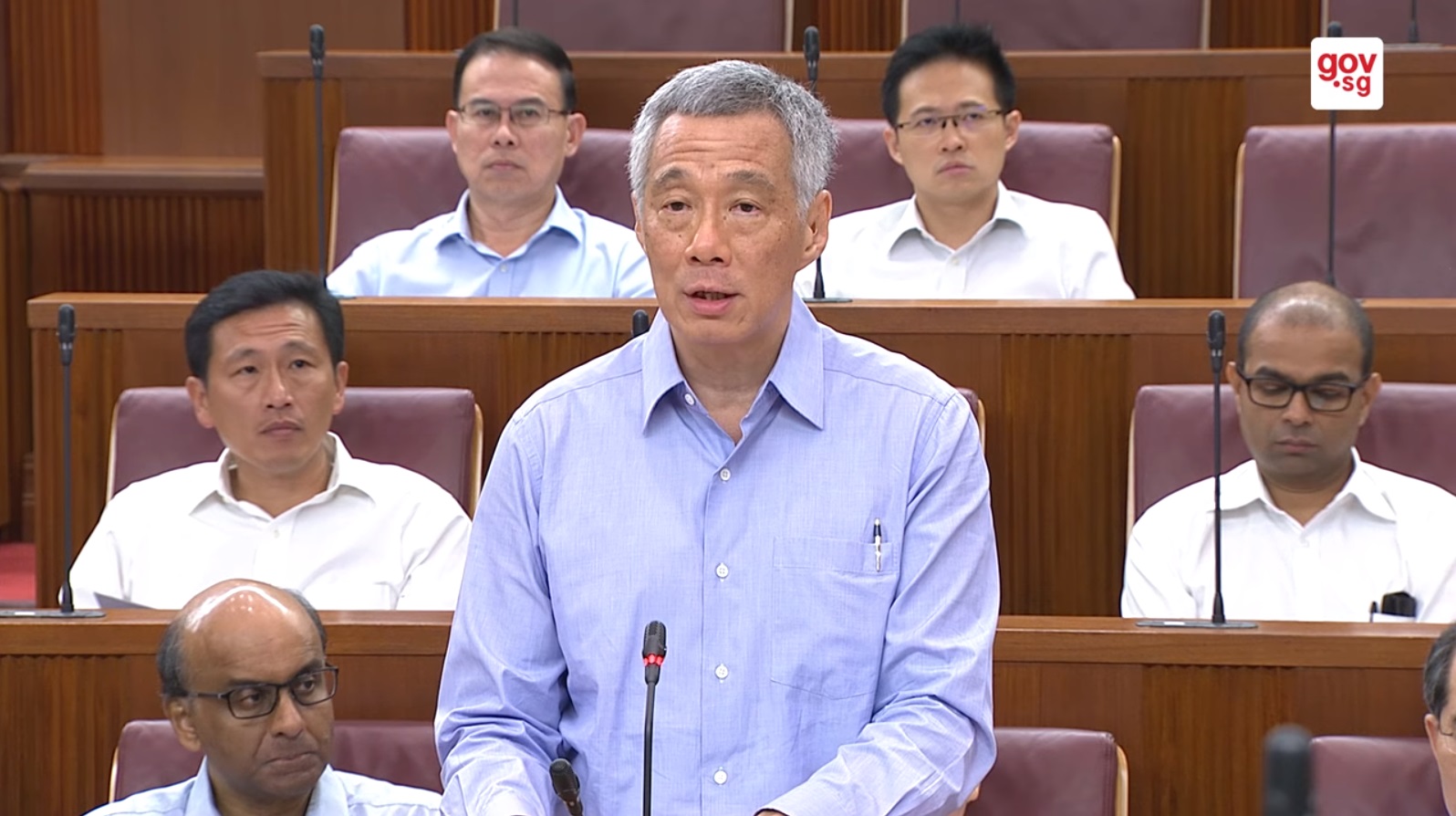Last week, a few prominent leaders have been mentioning the speech when discussing Section 377A of the Penal Code, the law that criminalises sex between adult men.
K Shanmugam, Home Affairs and Law Minister on Sep 7: "For us, Singapore section 377A, PM has set out the position in parliament, there was a debate (in 2007)."
" frameborder="0" allow="autoplay; encrypted-media" allowfullscreen="allowfullscreen">
Janadas Devan, Chief of Government Communications and Director of Institute of Policy Studies on 8 Sep: "Till the majority changes, the “uneasy compromise” on 377A, as PM Lee described it, that we decided upon more than a decade ago, remains the only viable position: Given the majority view, the law remains on the books. But the Government does not and will not enforce 377A."
[related_story]
It has been a while since Prime Minister Lee Hsien Loong quoted himself in that speech, but his position has not changed.
During his interview on BBC HARDtalk in 2017, he was posed with the 377A question.
And his reply?
"My personal view is that if I do not have a problem, this is an uneasy compromise, I am prepared to live with it (keeping 377A) until social attitudes change."
He added that 377A "is a law which is there," and that "if [he] removes it, [he] will not remove the problem".
The historical context
Just like this year's review of the Penal Code, the government introduced the Penal Code (Amendment) Bill in 2007, which proposed significant changes to the law.
The topic that caught much attention involved section 377, which prohibited oral and anal sex between consenting adults.
Ho Peng Kee, then-Senior Minister of State for Home Affairs said that as the Penal Code "reflects social norms and values, deleting section 377 is the right thing to do as Singaporeans by and large do not find oral and anal sex between two consenting male and female in private offensive or unacceptable".
Hence, the Bill proposed the repeal of section 377, but opted to keep section 377A which prohibited similar acts between homosexuals.
On 377A, Ho said that public feedback on the issue has been "emotional, divided and strongly expressed with the majority calling for its retention".
Ho concluded that "whilst homosexuals have a place in society, repealing section 377A will be very contentious and may send a wrong signal that Government is encouraging and endorsing the homosexual lifestyle as part of our mainstream way of life."
Parliament eventually concluded that legislation had to reflect both societal norms and the views of the majority, and thus opted to keep section 377A.
The speech
Enter PM Lee.
 In 2007, PM Lee spoke about 377A in parliament.
In 2007, PM Lee spoke about 377A in parliament.
After hearing the heated debates from parliamentarians and observing the reactions from the public, PM Lee quipped that while the parliamentary debate was on the amendments to the Penal Code, the hottest debate is on one section not amended - section 377A.
He then proceeded to give a 3,420-word speech that stated his position and the Government's position on this matter.
And garnered much applause from the House that day.
Below is the summary:
First, the legal advice.
The Attorney-General's legal advice to the Government was that the continued retention of section 377A would not be a contravention of the Constitution.
Second, the government's attitudes towards homosexuality.
Basically, the government strives to maintain a balance, to uphold a stable society with traditional, heterosexual family values, but with space for homosexuals to live their lives and contribute to the society.
Family as a building block of Singapore society: The government views the family - heterosexual marriage and having children - as the basic building block of the Singapore society. Hence, the government has reinforced this by policy (through housing policies) and wants to keep it so.
However, the government acknowledges that not everybody fits into this mould and recognises that homosexuals are part of the Singapore society.
But homosexuals have a place in Singapore: Hence, homosexuals are entitled to their privates lives and work in all sectors, including the public sector.
PM Lee added that Singaporeans should not make it harder than it already is for homosexuals to grow up and to live in a society where they are different from most Singaporeans.
But there are limits for them: Homosexuals should not set the tone for Singapore society and actively promote their lifestyles to others.
However, the Government does not act as the moral police, and does not proactively enforce section 377A on them.
Third, Singaporeans' attitudes towards homosexuality
Singaporeans have not reached a broad social consensus on homosexuality.
There were still very different views amongst Singaporeans on whether homosexuality was acceptable or morally right.
And although there was a range of views, PM Lee noted that many people are not that seized with this issue.
For the majority of Singaporeans, their attitude was a pragmatic one -- we live and let live.
Section 377A as a symbolic issue
Because of the Penal Code amendments, section 377A had become a symbolic issue, a point for both opponents and proponents to tussle around.
PM Lee did not doubt the depth of the sentiments and the breadth of the support from both camps.
But he noted that issue was still very contentious in the West, even where they have liberalised.
But abolishing 377A will not end argument
PM Lee thought that 377A is not an issue where Singaporeans can reach a happy consensus. Abolishing it was not going to end the argument in Singapore.
Among the conservative Singaporeans, the deep concerns over the moral values of society would remain.
Among the gay rights' activists, abolition was not going to give them what they want -- more space and full acceptance by other Singaporeans.
PM Lee wondered if the repeal of 377A would cause the gay activists to push for more, to change what is taught in the schools, to advocate same-sex marriages and parenting.
Majority of Singaporeans would strenuously oppose these follow-up moves, and many who are not anti-gay will be against this agenda.
Forcing the issue will not settle the matter indefinitely
On section 377A, it was better to accept ambiguity and legal untidiness, as the current legal position in Singapore reflected these social norms and attitudes
PM Lee believed that Singaporeans were not going to reach an agreement within the society even if one tried to force the issue and settle the matter definitively.
Reason? People on both sides hold strong views. Discussion and debate are not going to bring them closer together. And instead of forging a consensus, society will be polarised and divided.
Solution? Leave section 377A alone.
PM Lee believed that there is space in Singapore and room for Singaporeans to live harmoniously and practically, all as Singapore citizens together.
He said that it was better to let the situation evolve gradually. As attitudes around the world change, this will influence the attitude of Singaporeans. As developments around the world happen, Singaporeans must watch carefully and decide what they do about it.
On issues of moral values with consequences to the wider society, Singaporeans should first decide what is right for themselves.
Second, Singaporeans should not get carried away by other societies and be wise enough to observe the impact of radical departures from the traditional norms on early movers.
Top photo from Prime Minister's Office Youtube.
If you like what you read, follow us on Facebook, Instagram, Twitter and Telegram to get the latest updates.
